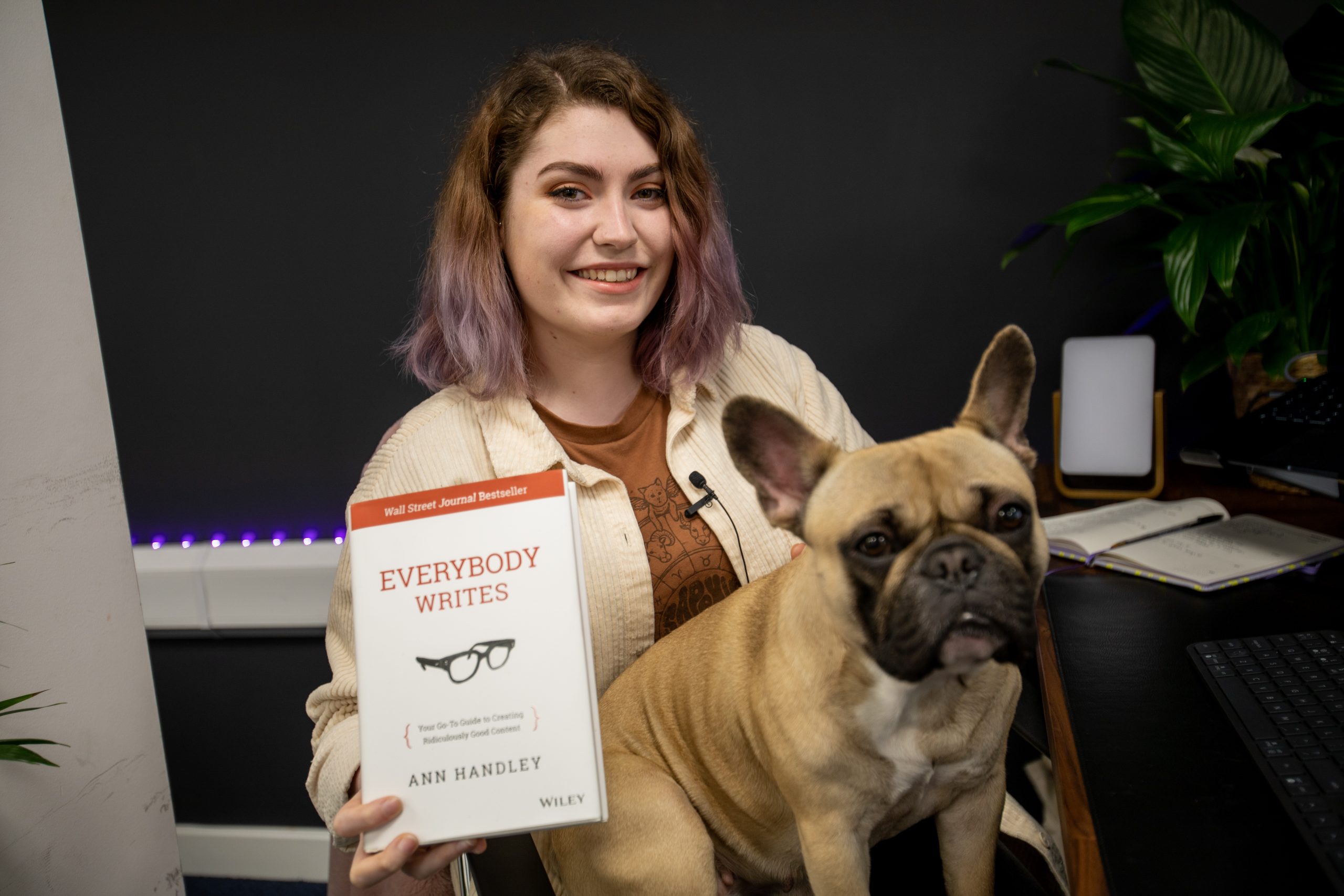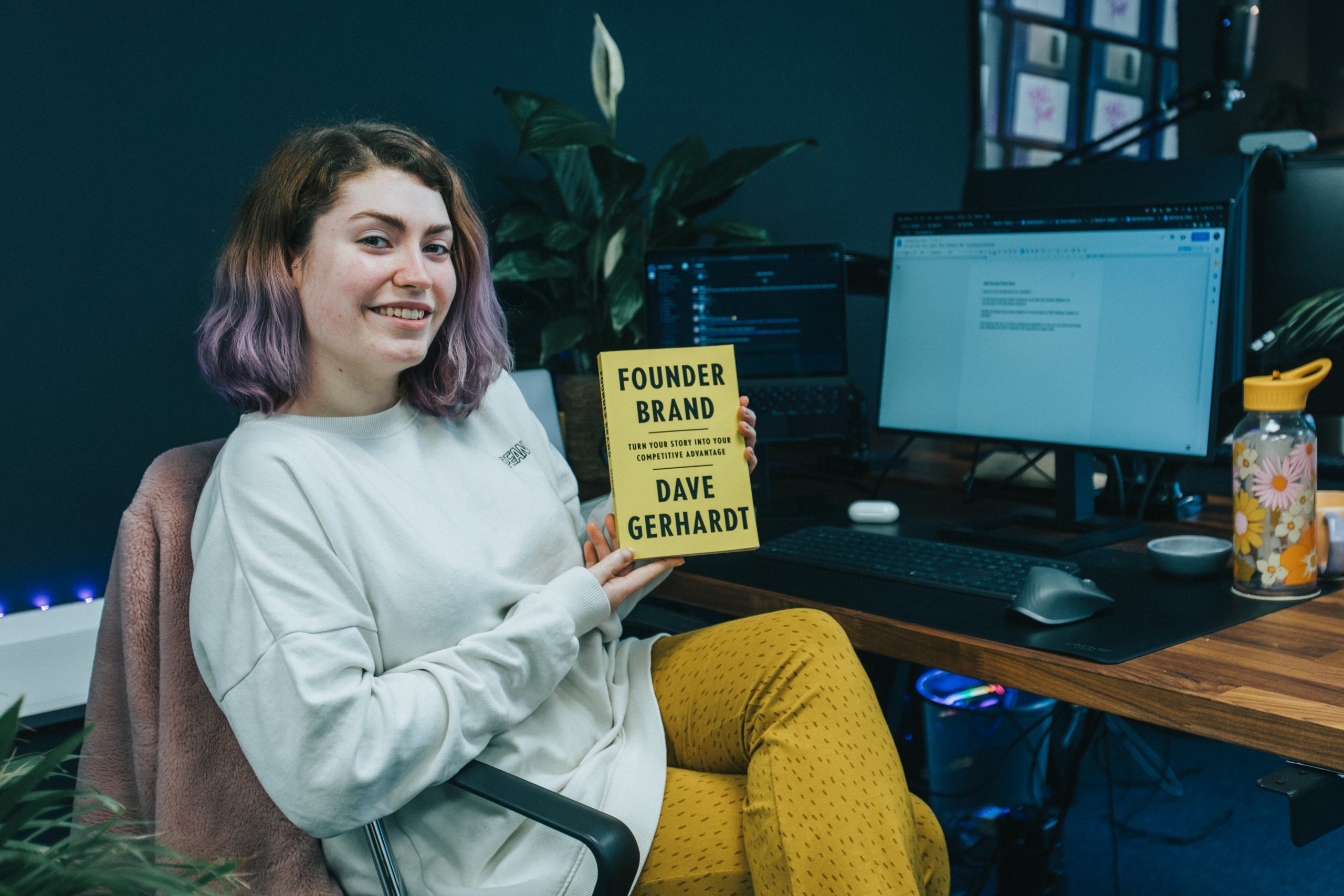Hey friends! I’m back with the third Soph Reads Stuff blog and we’re tackling a big one – the marketing heavyweight that is Everybody Writes by Ann Handley.
Ann Handley is a champion of digital marketing, with two best-selling books under her belt and a distinguished career as a keynote speaker and marketer. She’s also the Chief Content Officer at MarketingProfs – an experience that she references heavily throughout the book. Basically, Ann is who I want to be when I grow up, and Everybody Writes is the copy handbook I need as a baby marketer.
If, like me, you’re constantly Googling things like ‘how many words should a blog be’ and ‘good LinkedIn hooks’, this book will become your new bible. Ann has thought of everything, tried it, and then answered all our questions. She’s been there, done that, and gotten the T-shirt. While there are a few draw-backs to this book, it’s definitely one I’ll keep going back to. So, let’s get into it.
Everybody Writes is a much heavier book than the two that I’ve tackled before. I started reading it nearly six months ago, and it’s taken me until last week to actually finish it. That’s not to say it’s boring – far from it. Every page is packed with helpful information, witty anecdotes and a brilliant amount of literary puns (which I am an absolute sucker for). Ann’s sense of humour resonated with me before I’d even started to read the body of the book, and if you read this quote from the Acknowledgements you’ll see why:

I cry about everything too, so I immediately felt like Ann and I were on the same page. Ann also said that she’s “more Eeyore than Seabiscuit”, which is the most relatable analogy I’ve ever heard, so I would very much like for us to be friends.
Everybody Writes covers pretty much everything from websites, blogs and social media posts, and then a few more things that I’d never even thought of. It starts with a series of rules covering how to write, grammar and usage, storytelling, and publishing, followed by guides on how to craft various types of content and finished with Ann’s recommendations for content tools. A lot of the stuff that was covered in the first few sections had already been drummed into me at uni, but for somebody whose background is more generalised and less writing-specific, these nuggets of writing goodness would be invaluable.
What I loved about Everybody Writes is that every single page adds value and knowledge, while Ann’s humorous anecdotes make you feel like you’re in on the joke. Ann’s advice also demonstrates her expertise, because every single rule is based on personal experience and industry insights. Rule #39 is a personal favourite, covering mondegreens and eggcorns, which are one of my biggest pet peeves (hello, “Pacifically”).

I think it’s clear at this point that I loved Everybody Writes. It’s going to get a pretty high rating, but I would be failing as a reviewer if I didn’t point out some of the issues with the book.
Firstly, it’s not an easy read. Structurally, it’s less like Platform’s enjoyable, narrativised romp through personal branding and more like one of those monstrous textbooks that haunted my undergraduate degree (I’m looking at you, The Norton Anthology of Theory & Criticism). It’s a much better book than a Norton anthology of course, but it’s not for the faint of heart. You have to really commit to getting through this one.
Everybody Writes also shows its age by referencing outdated sites such as LinkedIn ‘Pulse’, which used to be a separate app rather than the integrated system that currently populates your newsfeed. Ann has addressed that issue by releasing a second edition in October last year, which was about three weeks after I got my hands on the copy I have now (annoying, I know). For that reason only, I’m giving the first edition a four star review, and recommending that you don’t make the same mistake I did by buying the outdated version.
Overall, Everybody Writes is an excellent resource for anybody who works in marketing, whether you’re a copywriter or not. As Ann says, in our industry, “everybody writes”. Armed with her book, you’ll be able to write more engaging and grammatically sound copy for socials, blogs and more.
Rating: 💜💜💜💜🤍
TL;DR
This is a great book, packed with useful advice on almost every aspect of marketing copy you could think of. It’s not an easy read because of how much information is packed in there, but it’s an invaluable resource for marketers everywhere. Definitely worth a read!
Want to chat about books? Find me on LinkedIn –> Sophie Colclough 🥰




